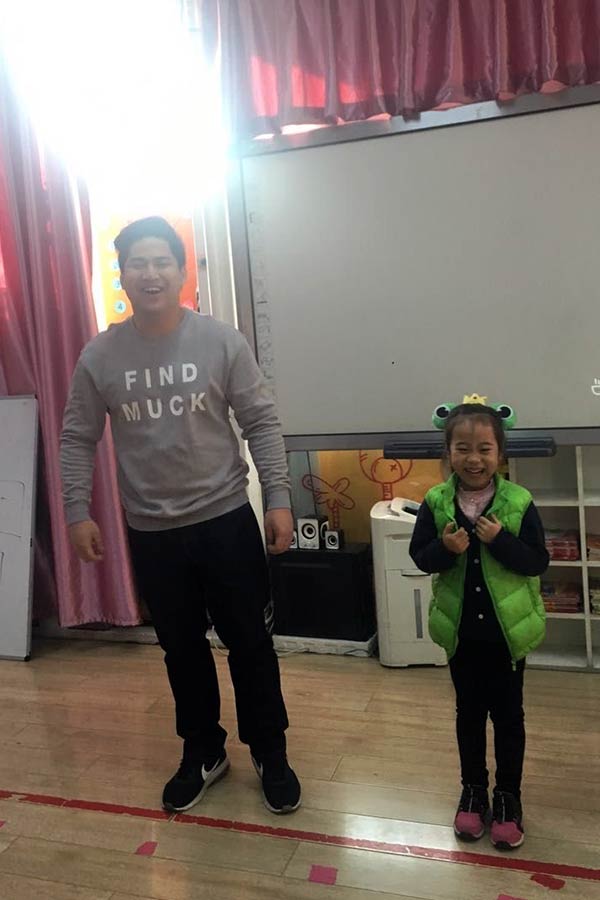|
Download ESL Books + Free PDFs
Save 25% on ESL Books for Teachers & Students Visit the ESL Expat Store and enter "SAVE25" at checkout! |
⋯ By Kenneth Charles Lambo ⋯
What does it mean to be a millennial EFL teacher? This is a question that haunts me for weeks now while under quarantine. For this reason, I did some thinking and ended up writing about it. Millennials and our students live side by side in an era of social media, e.g., Instagram, Twitter. We have grown with social media, innovative technology and rapid social changes happening right before our eyes. And all these put together our experiences develop the millennial teacher inside us. So, who better to understand the students? Millennials.
Before we start digging fellow millennials, just a quick caveat: this is my personal experience and my views are based on my time as a teacher in China. This article does not pick a fight on which generation teaches better. This is for millennials and why we are different.

We are idealistic with an open-mind
It is very tricky to keep our idealism working harmoniously with others. It is an open secret our prejudice toward other people, and to culture specifically, is influenced by the cultural values we are taught. We adhere to them— to some degree we function on these values as if they are the gold standard of values— shaping our worldview. We have our own set of reality that may contradict or vary from others. Conflicts may inadvertently arise, but nothing that we can’t handle as millennial teachers.
How does that reflect in a real classroom setting? It has been a cultural practice in North America to maintain eye contact when talking to people. That may be a different take in China when students express their opinion or answer. Eye contact to someone in authority (e.g., teacher, aunt) means disrespecting cultural norms. For me that cultural difference is totally fine. I do ask; however, to give me occasional eye contact longer than 6 seconds as a practice in building self-confidence.
I try to balance the West and East by treading carefully on cultural expectations and practices so that I don’t offend anyone in the process. On one occasion, I discussed the concept of democracy to my Grade 7 students. I used the Hong Kong protest to weigh in on their opinion about democracy and communism. I really thought I would ruffle some feathers in the class, to some parents, and even the school. And no, it was the best discussion I had. My expectation was to create a dialogue where they can talk about a topic and discuss it with examples in real life.
Things like that are important in promoting cooperation and bridging a cultural gap. When they grow up, we hope to see them shaking hands with other cultures and not trading fists. Keeping an open mind amidst the challenges of teaching in a classroom that may share a different culture than us is the best weapon we have in performing our duties as a teacher, and it will eventually define our role as a teacher in our school community.
We are the boss with a kind heart
As the boss in the classroom, we are the person in command. Our students listen and put us in the authority position, so our class, our rules if we put it that way. We deal in an often large class with diverse personalities, socio-economic background, and learning styles. Imparting rules to follow for classroom management can be done without sounding like a dictator. We can learn to understand each of our students while keeping the rules in full force.
What I mean by that is everyone must follow the rules— no grey lines or exceptions at all. In my class, I practice what I call meritocratic scaffolding. Talent and achievement are rewarded. Not everyone learns the same trajectory and students who are struggling get the support from their peers. No child left behind, it’s a win-win.
In the real world, no one is going to help us but ourselves. It doesn’t need to be that way, though. We can always offer help and support to anyone. We show them that we are a kind of teacher who knows how to lead academically and inculcate responsible citizenship. We lead by example. It is an essential life skill to develop.

We are passionate and driven
Frankly speaking (and no offense to the older generation), ESL education is still run by the policies of the past generation that seems to get stuck in the Neanderthal era. And despite the criticism that millennial teachers are less determined and not persevering enough than the older generations, we got the flaming passion and bullet-strike drive.
I remember my first year of full time teaching in Beijing. While I was on the plane from Toronto en route to China’s capital, I mentally prepared myself the kind of teacher I want to portray. I got the whole nine yards covered from all aspects of teaching I could possibly cover. Believe me, I got anxious because I felt like there was something missing.
What could I possibly miss if I studiously did my research and I was armed with fresh out of college drive to see the world change? There was this eagerness and passion to change the world through my teaching. And certainly, the changes in our society shape the level of passion and drive we put in our EFL classroom. We put them into action. Our students see them live. They learn through it.
We have the patience of a saint
We get to have that patience or the job will consume us on the inside. Students, as described by my friend Bob, are “monsters” on a bad day. We will see them behave in a bizarre fit of craziness, silliness, and out of this world tantrums. But despite all of that, prepare to be amazed to see we’re still loving them the next day. And as monsters as they are at times, for us we see beautiful, curious and inquisitive individuals eager to grasp the mysteries of their natural world.
Some say we will develop a heart of steel. Truth be told, we are nonchalant on the occasional outbursts because we understand that it will reach a plateau. We know getting to the peak is an arduous journey everyday, but we also know everything gets back to normal. It’s just a bad day not a bad life.
We are millennials
We live in a totally different world now. From a millennial standpoint, the route of education and the system it operates traverse significantly away from what it used to decades ago. This is a personal opinion and let me explain that in context. Millennials are entering the workforce in full speed— we are the emerging market of workers taking the throne from the aging baby boomers. We are the hotly discussed and misunderstood generation.
They think of us as lazy, financially incompetent and just want to have fun. This stereotype leads to misunderstanding in workplace expectation. We are challenging the status quo of workplace leadership. We want to maintain a work-life balance and we care more on purpose than paycheck. This turnaround of priorities makes us more attached to what we are doing. We seek meaning, purpose and satisfaction.
As teachers, we love to learn new things and explore the endless boundaries of our and students’ imagination. We create a space to grow together with our students. We enjoy learning. We yearn for self-development and channel that to the way we approach teaching and learning. If we are having fun while seeking the thrill of knowledge, imagine the kind of classroom we manage and create. Better yet, imagine a world decades from now.
The EFL world is evolving. And millennial teachers evolve with changes in the industry because that is the only way we can thrive in this career. We always search for innovation in our teaching. We search for meaning, new ways, and strategies to add in our pedagogical box. Signing up for this job is the beginning of a journey to change our student’s lives, and in the process they also touch our life in a humbling way we could imagine. The way we do things in our classroom and outside the school define us as a person, and most of all as a millennial teacher in a millennial world.

About Kenneth Charles Lambo
Kenneth works as an English teacher at a training center in Beijing. On his spare time, he binges Netflix and his favorite TV show of all time is Breaking Bad. He is currently enrolled at University of Saskatchewan’s CERTESL program to become a certified English language teacher in Ontario.
Do you have a story about teaching or learning English?
Submit your story and it could get featured in our next blog publication.
Read more stories on the blog.
More Blog Articles for Teaching and Learning English:
- Send in the Clowns: The State of the Online Teaching Market in 2021
- Teaching in China During the Time of the Virus
- Where to Teach in China
- Can You Teach English In China Without A Degree?
- 4 Surprising ESL Teacher Statistics During COVID-19
- Translation as a Way to Save Indigenous Languages
- 3 Fun Ways of Teaching English as a Second Language
- 5 Tips for Teaching English the Fun Way
- Top 3 Apps to Learn English for Free
- Why Getting a TEFL Certificate is Worth It
- How to Learn English Fast and Effectively by Yourself
- Managing Culture Shock When Working Abroad
